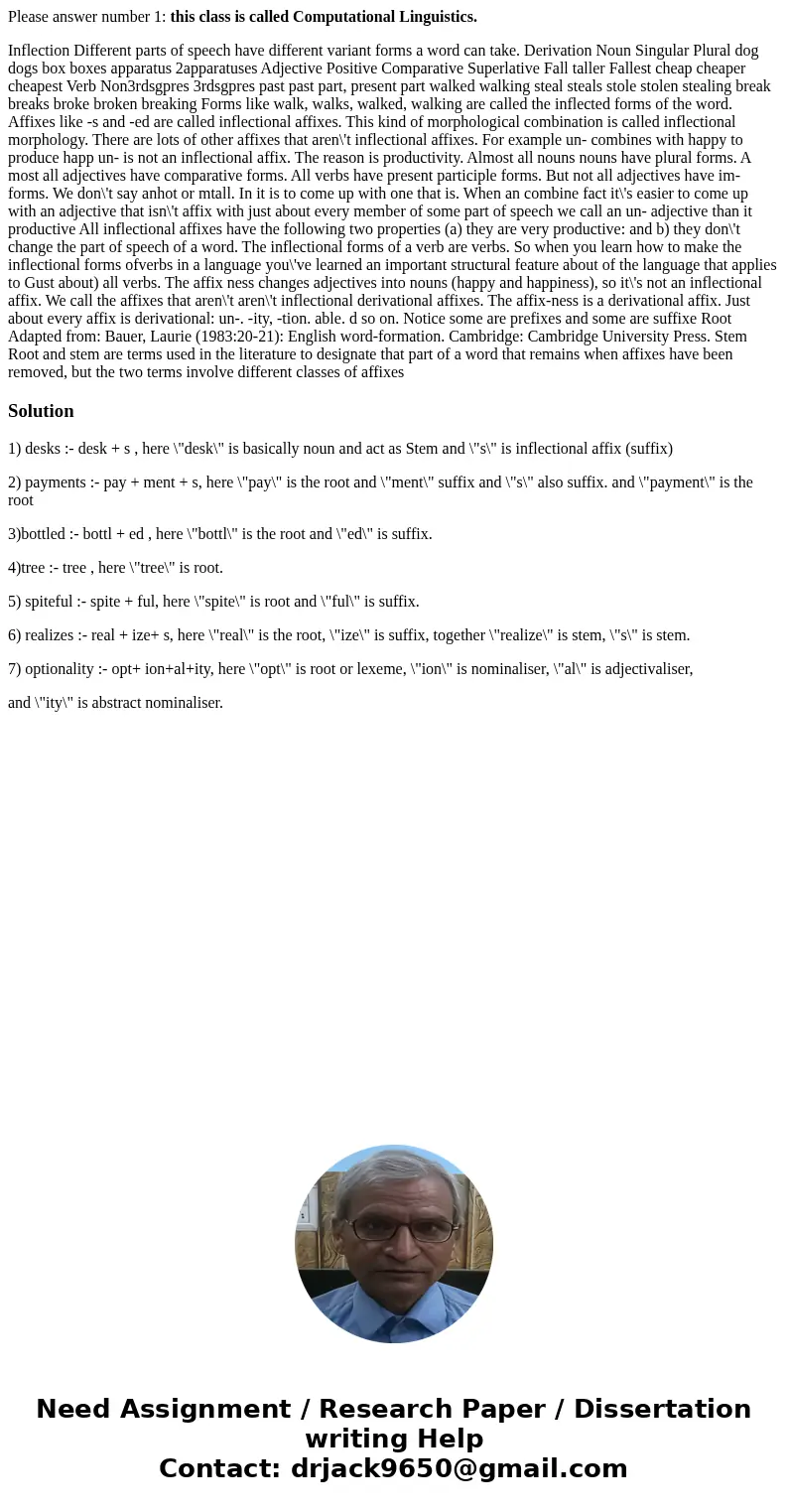Please answer number 1 this class is called Computational Li
Please answer number 1: this class is called Computational Linguistics.
Inflection Different parts of speech have different variant forms a word can take. Derivation Noun Singular Plural dog dogs box boxes apparatus 2apparatuses Adjective Positive Comparative Superlative Fall taller Fallest cheap cheaper cheapest Verb Non3rdsgpres 3rdsgpres past past part, present part walked walking steal steals stole stolen stealing break breaks broke broken breaking Forms like walk, walks, walked, walking are called the inflected forms of the word. Affixes like -s and -ed are called inflectional affixes. This kind of morphological combination is called inflectional morphology. There are lots of other affixes that aren\'t inflectional affixes. For example un- combines with happy to produce happ un- is not an inflectional affix. The reason is productivity. Almost all nouns nouns have plural forms. A most all adjectives have comparative forms. All verbs have present participle forms. But not all adjectives have im- forms. We don\'t say anhot or mtall. In it is to come up with one that is. When an combine fact it\'s easier to come up with an adjective that isn\'t affix with just about every member of some part of speech we call an un- adjective than it productive All inflectional affixes have the following two properties (a) they are very productive: and b) they don\'t change the part of speech of a word. The inflectional forms of a verb are verbs. So when you learn how to make the inflectional forms ofverbs in a language you\'ve learned an important structural feature about of the language that applies to Gust about) all verbs. The affix ness changes adjectives into nouns (happy and happiness), so it\'s not an inflectional affix. We call the affixes that aren\'t aren\'t inflectional derivational affixes. The affix-ness is a derivational affix. Just about every affix is derivational: un-. -ity, -tion. able. d so on. Notice some are prefixes and some are suffixe Root Adapted from: Bauer, Laurie (1983:20-21): English word-formation. Cambridge: Cambridge University Press. Stem Root and stem are terms used in the literature to designate that part of a word that remains when affixes have been removed, but the two terms involve different classes of affixesSolution
1) desks :- desk + s , here \"desk\" is basically noun and act as Stem and \"s\" is inflectional affix (suffix)
2) payments :- pay + ment + s, here \"pay\" is the root and \"ment\" suffix and \"s\" also suffix. and \"payment\" is the root
3)bottled :- bottl + ed , here \"bottl\" is the root and \"ed\" is suffix.
4)tree :- tree , here \"tree\" is root.
5) spiteful :- spite + ful, here \"spite\" is root and \"ful\" is suffix.
6) realizes :- real + ize+ s, here \"real\" is the root, \"ize\" is suffix, together \"realize\" is stem, \"s\" is stem.
7) optionality :- opt+ ion+al+ity, here \"opt\" is root or lexeme, \"ion\" is nominaliser, \"al\" is adjectivaliser,
and \"ity\" is abstract nominaliser.

 Homework Sourse
Homework Sourse